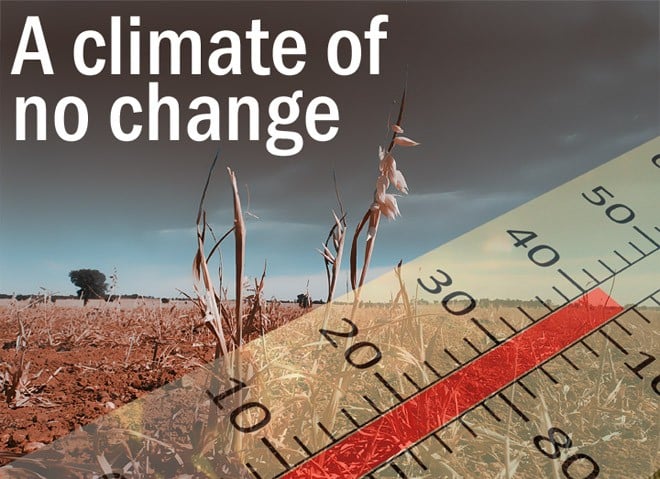
Looking at the issue of climate change from a common man’s perspective

About two weeks back, we at The News on Sunday had listed climate change as one of the most under-reported issues in this country. June 5 is marked as the World Environment Day. Pakistan is among the list of countries that are most vulnerable to climate change. It is also a country that does not have financial and technical resources to mitigate the factors that affect climate adversely.
But what do we know about climate change, not as a country but as a society, as people? The indifference of humanity in general to this phenomenon is owed to the fact that it is a gradual transformation and people are more pushed about things that impact them in the short term. What is not being realised is that this is not something that is going to take place in the future; it is already showing its impacts, and a strong wake-up call awaits us.
The government admits that Pakistan has collectively suffered losses worth $20 billion because of the adverse effects of climate change. This is a huge loss for a country like ours and therefore, apart from trying to mitigate the causes of climate change, Pakistan needs to adapt immediately or face an emergency-like situation.
Read also: Adaptation before mitigation
The dangers that are already manifest include sectors like coastal and marine environment, dry land ecosystems, agriculture and livestock sector, forests, biodiversity and health. They have already come in the shape of floods and droughts and disease destroying lives and livelihoods.
But how aware are the people of the man-made elements in what they consider as natural disasters? Our Special Report today looks at the issue from a common man’s perspective. It seeks to improve an understanding on the issue of climate change at the local, national and global levels but this must begin at the level of the individual. How can individuals start living lives that minimise dangers to the environment? How can they change their consumption patterns? It’s amazing how it starts from our everyday life, basic things like what we eat and wear and so on.
Read also: Pakistan’s vulnerability
Do we know what does one tree mean to this earth and us? Are we pushed to not let them be cut and plant many more? It’s not a matter of one or two lifetimes; we owe this to the earth that we inherited and shall leave for the coming generations.